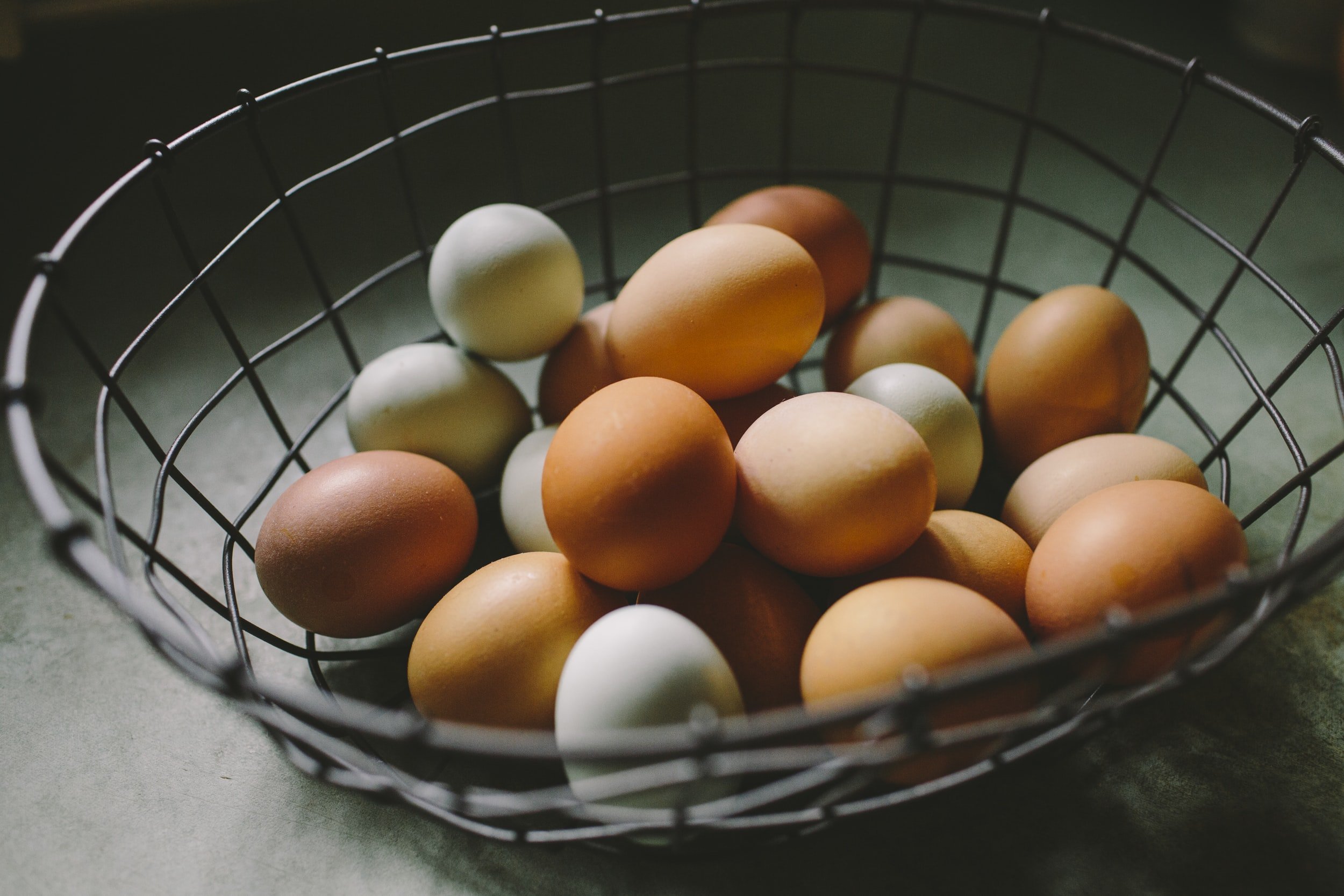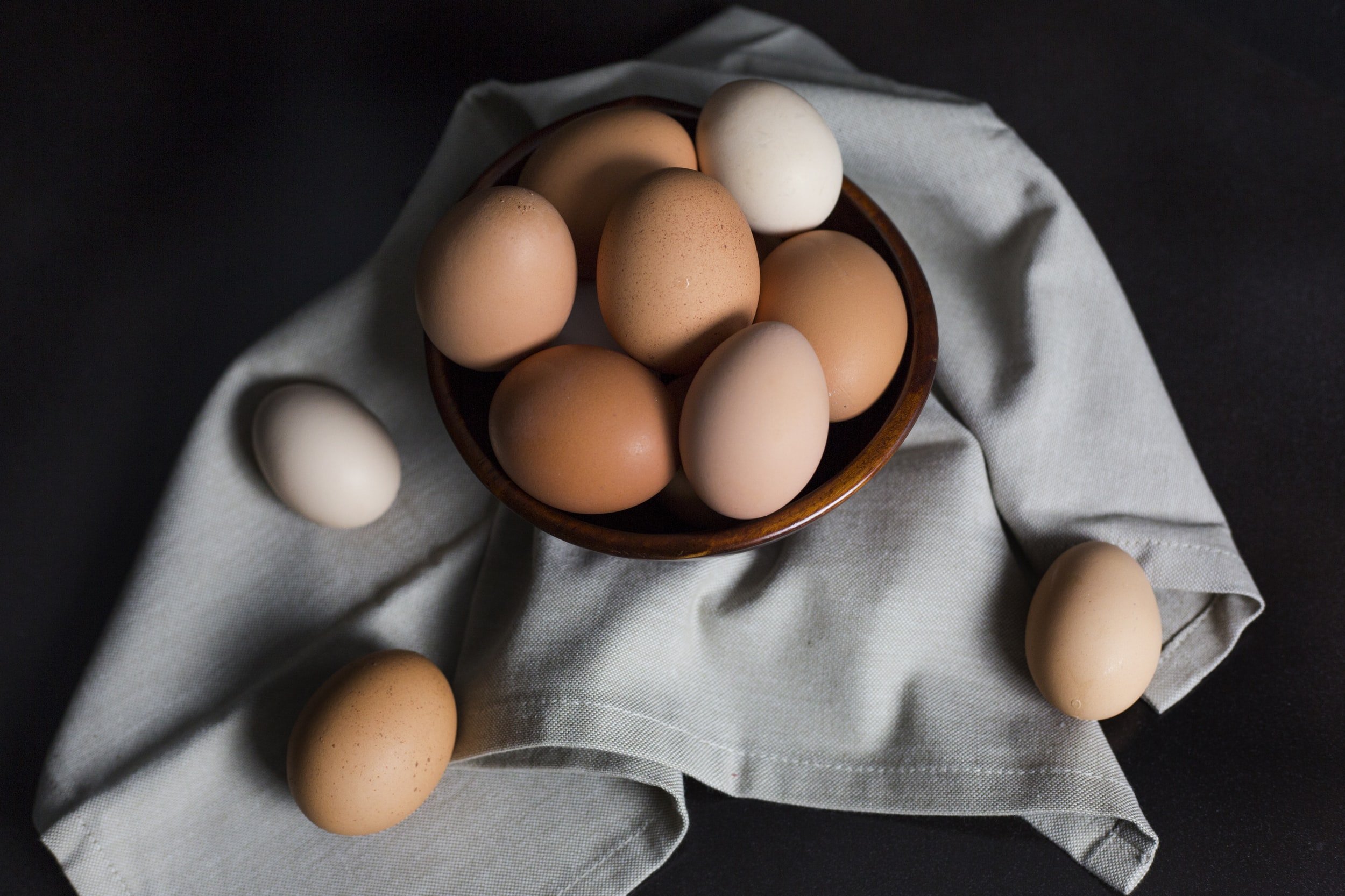How to Prevent Eggs from Freezing
Frozen eggs are a major issue for many people who raise chickens. Not only can they result in a loss of income and food, but they can also lead to other issues - like your hens deciding to eat the eggs!
Preventing your eggs from freezing is the easiest ways to deal with this. After all, an ounce of prevention is worth a pound of cure.
But it’s definitely easier said than done, especially if you live in an area that experiences harsh winters with regular daily temperatures that are well below freezing.
Stuck? Here are some ideas to help you learn how to prevent eggs from freezing this year.
**J&R Pierce Family Farm is a participant in the Amazon Services LLC Associates Program, an affiliate advertising program designed to allow sites to earn advertising fees by linking to products on Amazon. I often link to Amazon when recommending certain products, and if you choose to purchase, I may earn a small percentage of the sale. It costs you nothing extra, and all recommended products are ones that I personally vouch for. **
How Do You Keep Eggs From Freezing?
Here are a few quick tips for keeping eggs from freezing, which I’ll discuss in more detail below:
Rethink your nesting boxes
Don’t discourage broodiness
Don’t rush to shovel
Add curtains
I’ll give you even more tips below, but check out this video for more helpful advice:
Why Are Frozen Eggs Such a Big Deal?
You might not think frozen eggs really matter all that much if you aren’t trying to make money by selling your eggs. What’s a cracked egg here or there?
However, there are several huge issues you will have to contend with when you allow your eggs to freeze.
For starters, it presents an issue with sanitation. The vent of the chicken (aka, the butt) is not known for being the most sanitary environment. When the vent gets dirty, the egg can become contaminated with poop. If the shell is intact, that’s not an issue - that’s the whole point of the shell, after all. It’s meant to guard the inside of the egg from bacteria.
However, when a crack appears, bacteria can get inside to the contents of the egg as it starts to thaw. Therefore, a frozen egg=an egg you automatically need to throw away.
Plus, frozen eggs are attractive to hungry hens who decide that eating their own eggs might not be such a bad idea.
If you haven’t yet, make sure you take the time to check out my post about how to stop hens from eating their own eggs.
How to Prevent Eggs from Freezing
Rethink Your Nest Boxes
Use as much straw or bedding as possible to keep the nest boxes clean, secure, and warm. Straw is a good choice because it will help the egg retain its natural warmth and will insulate it to its core. You can also use the deep litter method in the nest boxes and in the coop, which will raise the overall temperature of both (and reduce your daily cleaning chores, as a side bonus).
You can also place bales of straw strategically around or under nesting areas. If these are built out and away from the coop (convenient for collecting eggs and cleaning the boxes, not as much so for preventing eggs from freezing), just add a few more bales.
Collect Eggs Often
This many not be realistic for people who work at day jobs away from the farm, but if you can, collect eggs several times throughout the day instead of just the once. On a particularly cold day, an egg can freeze in just an hour or two.
If you aren’t around to collect eggs on the hour, consider enlisting the help of a neighbor who wants to earn a buck or two.
Don’t Discourage Broodiness
Many people enjoy having broody hens, and I don’t blame them. In the dead of winter, this is something you will want to encourage. A broody hen can keep the eggs beneath her warm and protected from the elements - even if she ultimately doesn’t hatch them all.
A word of caution, though - just make sure there are plenty of nest boxes for your other hens so that they don’t fight and, in the scuffle, break the eggs.
Don’t Rush to Shovel
You’ll love this tip - you’re getting some permission to be lazy! While it’s a good idea to shovel out an area around the coop for your chickens to walk around in the run, you don’t necessarily need to remove the heavily packed snow that’s around your coop. This can insulate your chicken coop and help it to retain heat when that icy wind starts to blow.
Add Curtains
Adding curtains to your nest boxes not only helps with the whole hens-eating-eggs debacle, but it can also prevent your eggs from freezing. Use an old wool sweater or even an empty feedbag, sewing or stapling it to the outside of the nest box. This will give your hens the privacy they want and deserve and will also keep the nest boxes a bit warmer, too.
Add Supplemental Heat With Caution
Heat lamps are rarely necessary to warm up a coop. Even though your eggs might freeze, it’s often not worth the risk. Heat lamps are easy to knock down and bulbs can shatter, leading to fire and even death.
There are radiant panel heaters that you can use to heat your coop, but use these with caution. If the power goes out and your chickens don’t have time to acclimate to the falling temperatures, you may find that you suffer from losses in your flock.
Reposition Your Nest Boxes
If you can, reposition your nest boxes so that they face east. This way, they will be warmed by the rising sun.
Winterize Your Coop
Each fall, take the time to inspect your coop for any air leaks or cracks. Doing this can prevent drafts from getting inside the coop and chilling your eggs so that they freeze and crack.
What to Do if Your Chickens' Eggs Freeze
Found a frozen egg or two? Not a big deal. If the egg hasn’t cracked, it’s still okay to eat. Just let it defrost in a bowl in the refrigerator. Don’t put the frozen eggs in a carton, as the egg will seep out as it thaws (if there does end up being any cracks) and make an unholy mess.
The flavor of your previously frozen egg might be a little off. You may be best off hard boiling the egg or using it in baked goods.
Check the egg carefully before you decide to store it. If it’s cold to the touch, rinse it in warm water before using. If it has frozen but not cracked, refrigeration is fine.
However, if your egg is cracked and the membrane has broken, you need to throw it out. It’s not worth running the risk of bacteria. It’s not a total waste, though - you can always use the eggshells in your compost or feed the eggs to your pigs.
You can even cook the egg up and feed it back to your chickens. Just make sure it’s cooked so that it’s in a form that your chickens don’t recognize as being an egg.
Want to learn more about farming? Be sure to check out these featured articles!
Subscribe to our email newsletter for regular tips and tricks on homesteading and farming – wherever you are. You can also follow us on Instagram (@jrpiercefamilyfarm) and Pinterest (J&R Pierce Family Farm) for frequent updates. Happy homesteading!





